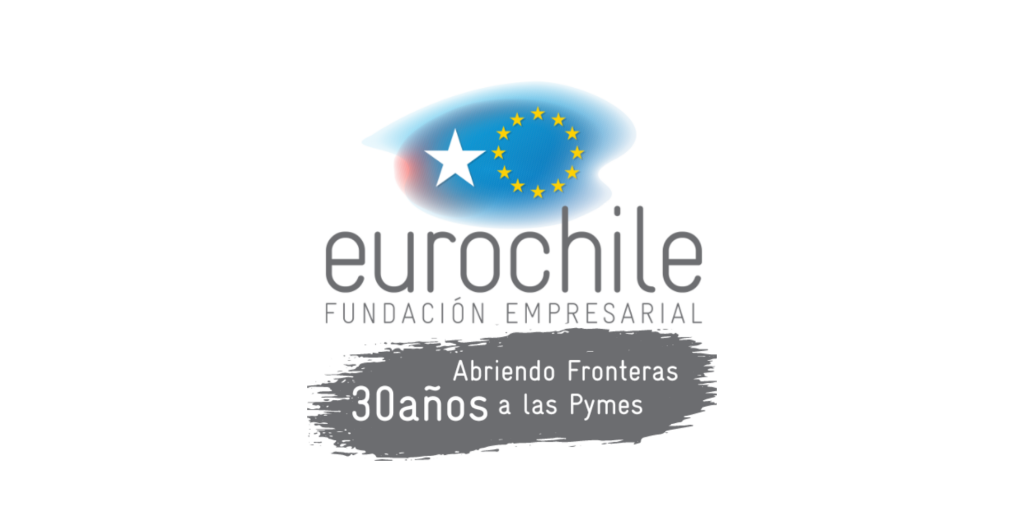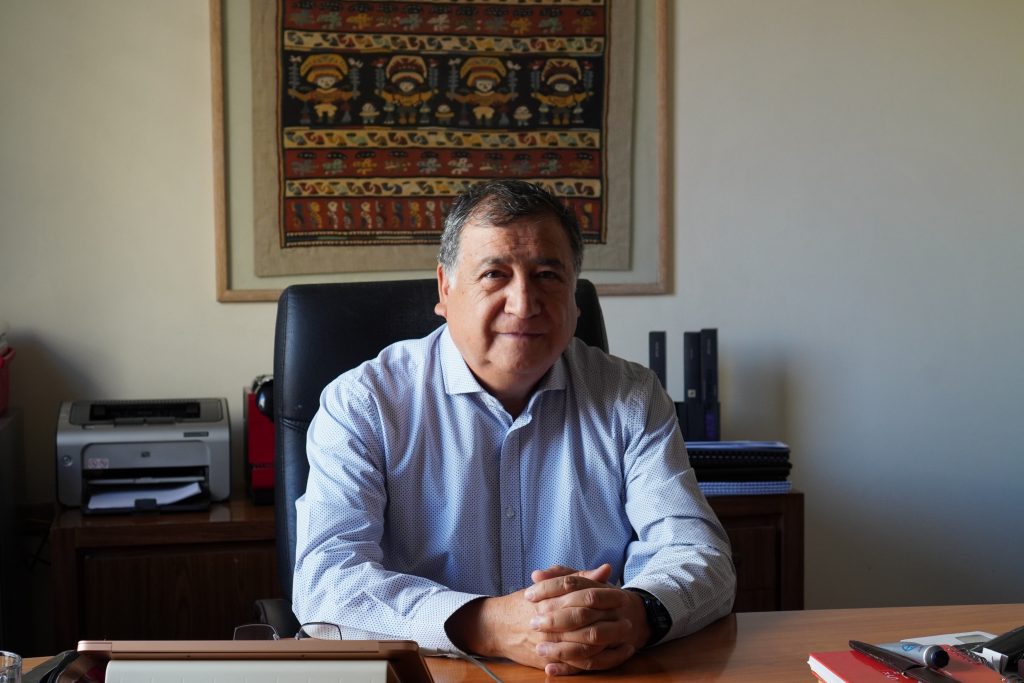30 years of success: Eurochile Business Foundation, an institution that seeks to contribute to the development of Chile in favour of small and medium-sized enterprises
The Eurochile Business Foundation has been a leader in promoting the internationalisation of companies for the last 30 years. It has connected numerous Chilean companies with European counterparts, strengthened commercial ties between both continents, generated multiple networks and contact platforms and has been the only Chilean partner of the European Enterprise Europe Network since 2008. It has also been a pioneer in the development of the circular economy in Chile and is generating new initiatives to continue promoting this model.

Eurochile Business Foundation is a non-profit organisation created on 12 March 1993 by the State of Chile and the European Union with the aim of promoting commercial, technological, cultural and academic exchange between both regions, with the mission of creating, promoting and consolidating this exchange between small and medium-sized enterprises and Chilean institutions and those of the nations that make up the European Union, both public and private, as a facilitator of the internationalisation process of SMEs and the strengthening of support institutions.
Eurochile’s activities also include business cooperation, where it promotes collaboration between European and Chilean companies through various projects with the aim of providing advice, exchanging new technologies and creating contact networks through the Enterprise Europe Network (EEN), a support network whose objective is to help with the growth and internationalisation of companies through information, advice and networking services. It also has a technology transfer area, specialised in sustainability and circular economy, which facilitates the exchange of technical and scientific knowledge between Europe and Chile, supports the training of professionals, studies and the transfer of technology and best practices.
For this reason, the Eurochile Business Foundation has positioned itself as a benchmark in the field of cooperation and business development, highlighting its commitment to associative work in various projects of great relevance. Among them, its constant participation from 1994 to the present in the AL-INVEST Verde programme, a project that promotes sustainability and circular economy in the business environment, currently focused on the fruit and construction sector, stands out. In addition, its work extends to the Coquimbo region through the Innovation Fund for Competitiveness (FIC), contributing to the reactivation and recovery of tourism through the generation of new sustainable and circular products, thus promoting the knowledge and practice of the circular economy in the region. The Foundation is also involved in the development of the National Regional Development Fund (FNDR) Osorno, promoting the improvement of the recycling and waste management value chain, focusing its efforts on citizens, waste managers and SMEs.
Likewise, it promotes cooperation in areas related to sustainable development, such as renewable energies, environment, sustainable agriculture and circular economy, as well as trade and investment exchange between the two continents, promoting participation in fairs and exhibitions, organising business missions and facilitating the identification of business opportunities. All this has allowed it to establish strategic alliances with public and private institutions in Europe and Chile, to strengthen collaboration in areas of common interest.
In this regard, we spoke with José Aravena, executive director of Eurochile Business Foundation, who told us about its trajectory, the objectives and challenges that the Foundation has faced in relation to its 30 years of existence, the projects it is currently working on, the integration of the Circular Economy in Chile and the path that this organisation will follow in the coming years.
- What has it been like and what has it meant for you to take on the leadership of the Foundation?
The Eurochile Business Foundation was a project that was in the hands of the Under-Secretariat of the Ministry of Economy and a team had been put together to set it in motion, and Eurochile was inaugurated in 1993. I was one of the members of the management team and in 1997 I took over the management of the Foundation. It has been a great challenge, in practice a very fruitful experience, since we are an institution that seeks to contribute to the development of Chile through what we can do in favour of small and medium-sized enterprises. So, it is a very varied job, there are many issues that must be seen, but very much in line with what I wanted to do with my professional life, since I started to relate to Europe since 1983 when I went to study, and when I joined the Eurochile team, I connected with their purposes and the meaning they wanted to achieve.
- How has the circular economy been evolving in Chile and what impact has the Foundation had in terms of disseminating these issues throughout the country?
Putting it in context, Eurochile since its inception has always been looking for issues that have a great development with the European Union, one of them is the circular economy, an issue that the European Commission had been working on since early 2010, so that by 2020 the “European Green Pact” arises, an initiative that seeks a new growth model that is more sustainable and helps combat climate change. For this reason, when we as a Foundation began to address these issues, we could have European development as a reference, which allowed us to carry out business missions, business rounds, seminars and conferences to begin to disseminate the circular economy in Chile, a topic that was quite unknown when we started in 2016.
We are currently addressing this issue to the business world because it is the one, we are targeting, with the aim of being able to publicise this new growth model that seeks to avoid all types of waste, and thus be able to reuse and reprocess everything that can be reused and reprocessed. This circular model is characterised by companies being more efficient and by joining this initiative, you contribute to improving the quality of life of the population, because, at the end of the day, environmental problems are becoming a global problem that affects the health and integrity of people.
- And in this sense, how did the need to support SMEs and bring them closer to this new system arise?
In general, Chilean SMEs have serious difficulties in absorbing technology and making productive changes, for a myriad of reasons: financial, time, lack of human resources, among others. In Chile, the issue of the circular economy has been developed by large companies, including multinationals such as Enel, CMPC, among others, since they have the means to do so. On the other hand, we have the SMEs that find it very difficult, firstly because they have no knowledge or resources, and secondly, they have no possibility of obtaining technical assistance and access to specialists who can help them in this area, so it is that world that we try to help with our projects and initiatives.
- How are the benefits obtained by the Foundation through its connections with Europe reflected for the benefit of Chilean companies?
At Eurochile, we have been pioneers in establishing an information and technology bridge between Europe and Chile. This connection allows us to keep abreast of the latest trends and advances in various sectors that are being developed on the other side of the continent, since one of our objectives is to transmit this valuable information to Chilean companies, so that they can anticipate changes and adapt more efficiently to the needs of the global market.
Moreover, it is exciting to see how Chilean companies find their European counterpart, generating synergies and business opportunities that benefit both sides. In this sense, we have established ourselves as leaders in the internationalisation of Chilean companies to Europe.
Likewise, over the last 30 years, our work has been based on strengthening business capacities and creating collaboration and learning networks between the two continents. Through training, consultancy and promotion programmes, we have sought to promote the sustainable and competitive growth of Chilean companies in the European market.
- How is the success of Eurochile reflected in these projects?
Well, it is reflected in the fact that we have more and more projects, we dedicate a lot of work to disseminate what we do as a Foundation, through national and international seminars, with the aim of being able to reach as many people as possible. We did a great job on the issue of the roadmap, but it was clear that the next step would have to be to work with companies directly, because the theory was already more or less developed, which is why our success has been reflected in the number of projects we have been assigned, especially those that focus on issues related to sustainability and the circular economy.
Now, that is the success of the Eurochile Business Foundation, but for us the most important thing is not the success of Eurochile, but the success of the companies, and that is what we are trying to achieve today, is that the companies that work with us can incorporate the circular economy in their way of production so that they can be more productive and competitive. In the end, the outcome is important, because you have to reconcile economic performance with resource use, you always need to balance the two. Whereas, in practical terms, the final result has to do with the number of companies that start to move towards a circular path, because this does not happen overnight, it is long, it has costs, companies sometimes do not have enough resources to do everything that needs to be done, but it is a process, and in the end, one will reap the results as companies become more circular.
- What future projections do you have for the Foundation and how do you see it in 5 to 10 years?
Look, I think that the Foundation is a spectacular instrument for cooperation in technology transfer between Chile and the European Union, we have many possibilities for growth. As for the limitations we may have, they are currently financial, but for our part we will continue to apply for projects, despite having a co-financing character, we will look for ways to cover the costs, in order to continue helping small and medium-sized enterprises to move towards circular systems and to internationalise them so that they can find their European counterparts.

José Aravena, executive director of Eurochile Business Foundation
